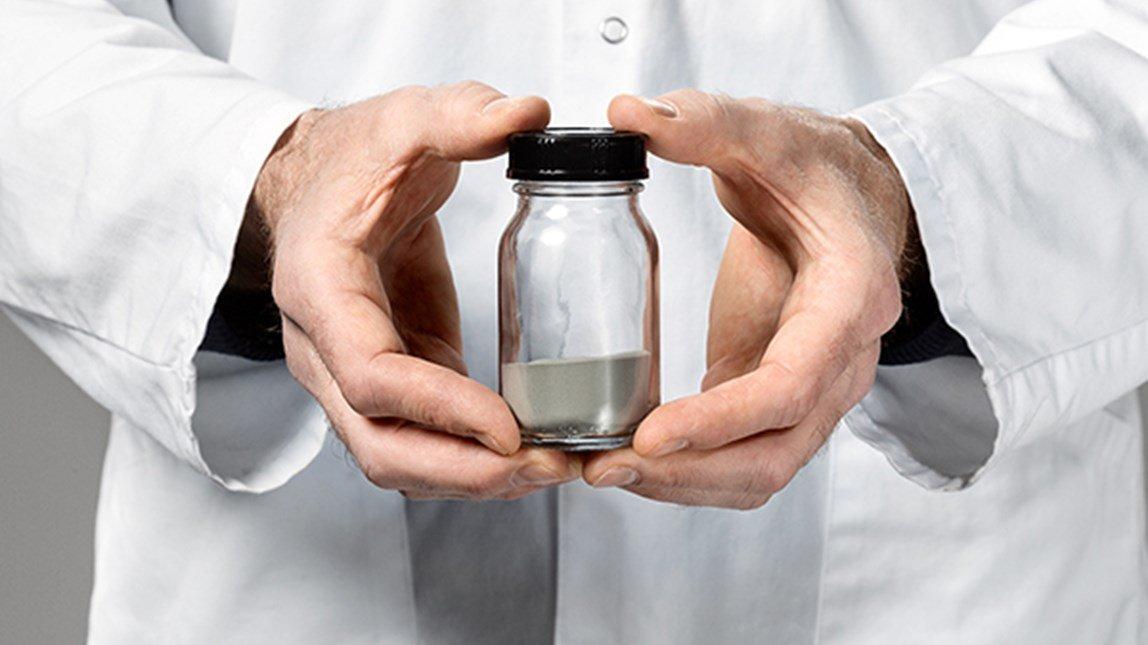
Gas-atomized powders made at a new facility in Sweden could accelerate the adoption of 3D printed titanium parts – and the shift towards sustainable manufacturing.
Sandvik’s new Osprey® powder plant for titanium and nickel-based superalloys has recently received the prestigious ‘AS9100 Revision D’ certification for deliveries to the aerospace industry.
The plant was inaugurated in the end of 2019 in Sandviken, Sweden. Since then work has been ongoing to ramp-up the highly automated plant, finetuning all processes and qualifying the powder to ensure the best possible consistency, morphology and quality suitable for additive manufacturing.
Titanium has exceptional material properties, being strong yet light and offering high levels of corrosion resistance. At the same time, it is biocompatible. However, the cost and complexity of machining from titanium billet has historically restricted its use to high value, low volume industries such as aerospace, medical and defense.
The launch of titanium powders for additive manufacturing supports a growing trend towards the 3D printing of titanium parts – and the shift towards sustainable manufacturing. The additive process results in far less material waste than traditional subtractive techniques, while also encouraging new levels of design freedom. This is opening up the use of titanium in other industries such as automotive and tooling. On Sandvik’s own Lightweight CoroMill® 390 tooling, for example, the additive version of the mill is more than 80% lighter and up to 200% more productive.
The net-shape capability of technologies like additive manufacturing not only means that material waste is minimized, but also that great energy efficiencies can be achieved by eliminating manufacturing steps. Sandvik says that “If combining this with the opportunities with a light and strong material like titanium can give enormous sustainability advantages.
Keith Murray, VP Global Sales, Sandvik Additive Manufacturing, says: “Weight reduction is for example a constant key issue for the aerospace industry, driven both by fuel cost and carbon footprint. The same is true for cars and trucks, and everything else that moves. Each kilogram of weight loss on an airplane saves about 3,000 US dollars per year in fuel – and can make a great difference for the planet.”
Traceability is of vital importance in the aerospace industry. Sandvik can offer what it says is an incomparable level of traceability for its titanium powder as it has the full supply chain in house – from titanium sponge to finished powder.
“In additive manufacturing it is essential to use high-quality metal powders with consistent quality, adapted to the different additive manufacturing processes. Our highly automated manufacturing process ensures excellent consistency – and the powders demonstrate optimal particle size distribution,” says Keith Murray.
The first two titanium powders produced at the plant are Osprey® Ti-6Al-4V Grade 5 and Osprey® Ti-6Al-4V Grade 23. The nickel-based superalloys are Osprey® Alloy 625 and Osprey® Alloy 718. Other alloys are available on request. In addition to the AS9100D certification, the plant is also certified according to ISO 9001, ISO 14001 and ISO 45001.